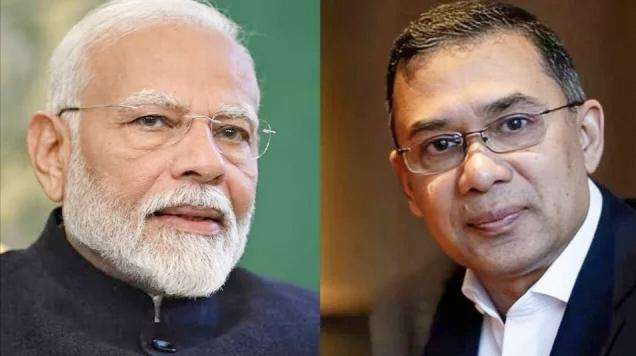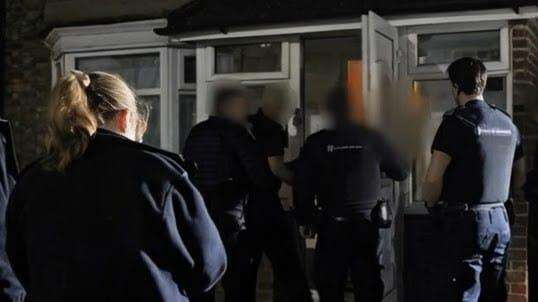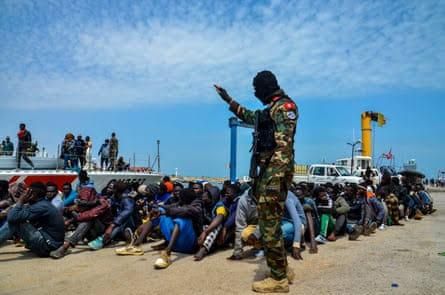Marie felt that things were about to get bad when she saw them, arranged in a queue at the traffic checkpoint. Four officers, all donning the national guard of Tunisia's combat green uniform. They demanded to see into her purse.
"There were only a few clothes, nothing else." Marie had travelled 3,000 miles from home across the Sahara for weeks. She was afraid she might not make it to her objective, which was the north shore of Africa, few minutes away.
An armed policeman charged at her. She was lifted into the air by someone else who grabbed her from behind. In the middle of the day, the 22-year-old was sexually attacked by the road on the outskirts of Sfax, Tunisia.“It was clear they were going to rape me,” says the Ivorian, her voice wobbling.
Her screams saved her, alerting a group of passing Sudanese refugees. Her attackers retreated to a patrol car.
Marie knows she was lucky. According to Yasmine, who set up a healthcare organisation in Sfax, hundreds of sub-Saharan migrant women have been raped by Tunisian security forces over the past 18 months.
“We’ve had so many cases of violent rape and torture by the police,” she says.
Marie, from the Ivory Coast city of Abidjan, knows others who describe rape by Tunisia’s national guard. “We’re being raped in large numbers; they [the national guard] take everything from us.”
After the attack, Marie headed to a makeshift camp in olive groves near El Amra, a town north of Sfax. Migration experts say that tens of thousands of sub-Saharan refugees and migrants, encircled by police, are now living here. Conditions are described as “horrific”.
Humanitarian organisation, aid agencies, even the UN, are unable to access the camp.
What happened to Marie in May has relevance beyond her continent: her attackers belong to a police force directly funded by Europe.
Her account – along with further testimony gathered by the Guardian – indicates that the EU is funding security forces committing widespread sexual violence against vulnerable women, the most egregious allegations yet to taint last year’s contentious agreement between Brussels and Tunis to prevent migrants reaching Europe.
That agreement saw the EU pledge £89m migration-related funding to Tunisia. Large sums, according to internal documents, appear to have gone to the national guard.
The pact vows to combat migrant smugglers. A Guardian investigation, however, alleges national guard officers are colluding with smugglers to arrange migrant boat trips.
The deal also pledges “respect for human rights”. Yet smugglers and migrants reveal that the national guard is routinely robbing, beating and abandoning women and children in the desert without food or water.
Senior Brussels sources admit the EU is “aware” of the abuse allegations engulfing Tunisia’s security forces but is turning a blind eye in its desperation, led by Italy, to outsource Europe’s southern border to Africa.
In fact there are plans to send more money to Tunisia than publicly admitted.
Despite mounting human rights concerns, the UK prime minister, Keir Starmer, prompted dismay on Monday by expressing interest in the model of paying Tunisia to stop people reaching Europe.
During a meeting in Rome with his rightwing counterpart, Giorgia Meloni, Starmer admired how the pact had prompted a “dramatic” reduction in numbers reaching Italy.
By contrast, the number of refugees and migrants near El Amra continues to grow. One migration observer in Sfax estimates there may be at least 100,000, a number that some feel Tunisia’s increasingly autocratic president, Kais Saied, is deliberately cultivating as a threat to Europe: keep the money coming, or else.
“If Europe stops sending money, he’ll send Europe the migrants. Simple,” says the expert, requesting anonymity.
It is a predicament that provokes questions around Europe’s willingness to ditch commitments to human rights to stymie migration from the global south. And how much abuse of migrants such as Marie is Brussels prepared to overlook before re-examining payments to Saied?
Moussa could almost taste freedom. Ahead, searchlights shimmering in the water: the Italian coastguard which would ferry him to Europe. But behind, closing in quickly, Tunisia’s national maritime guard. Moussa’s dream was soon shattered.
The 28-year-old from Conakry, Guinea, was on board one of four boats intercepted off Sfax during the night of 6 February 2024. The occupants – about 150 men, women and children – were brought ashore to Sfax, handcuffed and herded on to buses.
At about 2am they arrived at a national guard base near the Algerian border. Shortly after, says Moussa, Tunisia’s security forces began methodically raping the women.
“There was a small house outside and every hour or so they’d take two or three women from the base and rape them there. They took a lot of women.
“We could hear them screaming, crying for help. They didn’t care there were 100 witnesses.”
Afterwards Moussa says some could hardly walk. Others were handed back their babies. Some were viciously beaten.
“There was a pregnant woman and they beat her until blood started coming from between her legs. She passed out,” whispers Moussa in the upstairs area of a Sfax coffee shop. Foreign media are not welcome in the city. Outside, a lookout scouts for police.
His account is corroborated by Sfax organisations working with sub-Saharan migrants.
“We’ve had so many cases of women being raped in the desert. They take them from here and attack them,” says Yasmine, whose group helps survivors overcome physical injuries from such attacks.
Requesting anonymity to avoid being detained, Yasmine says their caseload suggests “nine in 10” of all African female migrants arrested around Sfax had experienced sexual violence or “torture” by security forces.
At another cafe in the gritty neighbourhood of Haffara, a smuggler describes witnessing a sexual assault by police.
“It was dawn and the national guard started searching women for money, but really they were searching their private parts. It was very violent,” says Youssef.
Another Sfax smuggler, Khaled, who ferries migrants from Kasserine, near the Algerian border, to Sfax, describes meeting migrant women attacked in the desert.
“Many times I pick up women who are crying, saying they’ve been raped,” says Khaled, a veteran of more than 1,000 trips.
Along with sexual violence, physical beatings appear routine. Joseph, 21, was taken from the El Amra camp last September during a national guard raid.
“We were handcuffed and put on a bus. Police were beating everyone with batons: kids, women, elderly. Everyone.”
Pointing to a scar above his left eye, the Kenyan adds: “I was hit many times.”
Others fared worse: one guard fired a teargas shell into a friend’s face. “His eye was hanging from his socket plus his leg was broken by police so he had to hop.”
Babies are born in 40C heat without medical help, vaccination, food. How can they survive?
Joseph was left near Algeria where the national guard seized his money, phone and passport. “After thrashing me with a stick they said, ‘Go there [Algeria], don’t come back.’”
In the chaos Joseph lost his friend with the fractured limb. He never saw him again.
Central to the EU-Tunisia deal is its desire to dismantle “criminal networks of migrant smugglers”.
The EU states it wants to improve a code of conduct for Tunisia’s police, an ambition that incorporates human rights training.
Sfax smugglers, however, tell the Guardian of widespread and systematic corruption between them and the national guard.
“The national guard organise the Mediterranean boats. They watch them go into the water then take the boat and motor and sell them back to us,” says Youssef.
Often, he says, the scarcity of £2,000 motors in Sfax means the national guard are the only sellers.
The UN’s International Organisation for Migration has no updated data, fuelling concern that large numbers of migrants are not being registered. “Individuals disappear as if they never existed,” Abdel says.
More arrive daily. In a smoke-filled Sfax bar, Ali Amami of the Tunisian League for Human Rights says: “Throughout Africa everyone heads here.” Last year Tunisia – with Sfax its centre – was the busiest departure point for migrants reaching Italy.
Now Sfax is off limits. Police have “cleansed” neighbourhoods of migrants, forcing them to El Amra. Cafe owners are arrested if a migrant is caught ordering a coffee.
Police “snatch squads” scout districts such as Haffara, ready to remove any stray migrant.
“Only women have the courage to go shopping,” says Mohamed, a migrant from Guinea. Courage is required. Last month one of his friends – seven months pregnant – visited central Sfax for groceries.
At a checkpoint, police pulled her into a van and took her to the Algerian border. “For days she was begging for water for her and her unborn child.”
Her body was found mid-August near Kasserine, face down in sand. Mohamed estimates up to 50 of his friends have been snatched from Sfax by the national guard and dumped in the desert. Of these five have disappeared or were found dead. Another 10 crossed into Algeria.
Although conditions in the desert are bleak, for many it is preferable to El Amra.
A crackdown, fuelled by Saied’s anti-migrant tirades, has meant organisations that helped El Amra’s migrants have shut. Staff are questioned or arrested. Yasmine folded her group in July after police intimidation.
Images of her colleagues were posted on Facebook, chastising them for helping migrants. “We couldn’t leave our houses for days,” she says.
For the migrants themselves, it means even food and water no longer reach the camp.
“They eat dead animals, roadkill, anything they find,” says Youssef.
Yasmine claims that because the camp is not receiving any medical attention, diseases including syphilis, HIV, TB, and scabies are common. The infant mortality rate is causing increasing concern. "Babies are born in 40 degree temperatures without access to food, medicine, or medical care. How are they going to survive?
"I've watched women give birth in the bushes," Youssef continues. They should be in the hospital, yet they pass away.








.svg)


